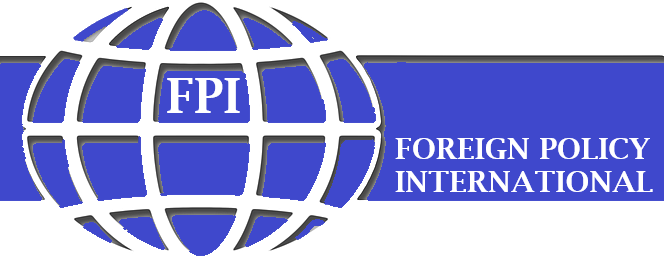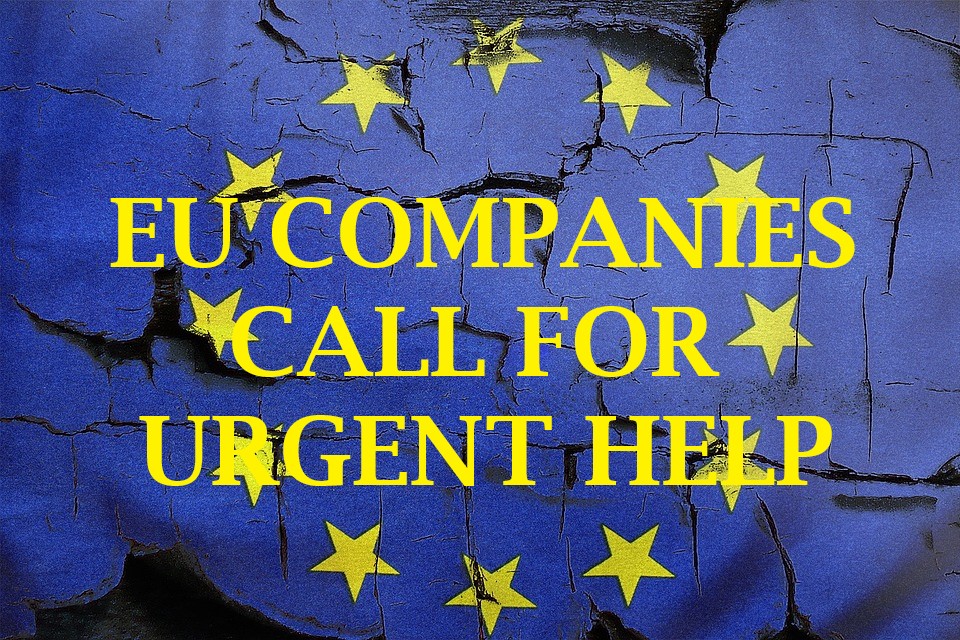Die Lage für manche Branche in der EU – wegen der aktuellen Energie- Preise und der Energie- Verfügbarkeit – wird immer brisanter.
Nun haben sich 53 CEOs großer Betriebe, im Rahmen eines offenen Briefes, an die EU-Führung gewandt (siehe Empfänger unten), und um dringende Hilfe gebeten.
Ergänzend zu diesem offenen Brief erlaubt sich FPI auf Publikationen hinzuweisen, die diese Zustände weitergehend beleuchten – Artikel 1 – Artikel 2 – (weitere Artikel im Internet verfügbar).
+++ +++
FPI wird diesen Brief im Original und voller länge veröffentlichen:
Hier der Link in Vollschrift:
https://eurometaux.eu/media/qnhn5k30/non-ferrous-metals-ceo-letter-on-energy-crisis-06-09-2022.pdf
Gehen Sie in den LINK und sehen Sie sich an, wer – nach unten scrollen – unterschrieben hat – sic! 53 CEOs – von 53 Betrieben – sic! 53 – sic!
ACHTUNG: Lesen Sie IM LINK – denn – hier gibt es auch Anhänge / weit nach unten scrollen (Anhänge die FPI hier nicht einfügt) – und die von den CEOs als wesentliche Maßnahmen erarbeitet wurden – sic!
To: President of the European Commission Ursula Von der Leyen, President of the European Parliament, Roberta Metsola, President of the European Council Charles Michel
Cc: Executive Vice Presidents Frans Timmermans, Margrethe Vestager, Valdis Dombrovskis; Commissioners, Thierry Breton, Paolo Gentiloni, Ms. Kadri Simson, European Commissioner for Energy
RE: Europe’s non-ferrous metals producers call for emergency EU action to prevent permanent deindustrialisation from spiralling electricity and gas prices
Dear Ms President Von der Leyen, dear Ms President Metsola, dear Mr President Michel, Ahead of Friday’s emergency summit, the business leaders of Europe’s non-ferrous metals industry are writing together to raise the alarm about Europe’s worsening energy crisis and its existential threat to our future. Our sector has already been forced to make unprecedented curtailments in the last 12 months. We are deeply concerned that the winter ahead could deliver a decisive blow to many of our operations, and we call on EU and Member State leaders to take emergency
action to preserve their strategic electricity-intensive industries and prevent permanent job losses.
50% of the EU’s aluminium and zinc capacity has already been forced offline due to the power crisis, as well as significant curtailments in silicon and ferroalloys production and further impacts felt across copper and nickel sectors. In
the last month, several companies have had to announce indefinite closures and many more are on the brink ahead of a life-or-death winter for many operations. Producers face electricity and gas costs over ten times higher than last year,
far exceeding the sales price for their products. We know from experience that once a plant is closed it very often becomes a permanent situation, as re-opening implies significant uncertainty and cost.
Europe’s clean energy goals require a competitive and growing metals sector to ensure a secure supply of the extra raw materials needed to shift away from fossil fuels. Base metals, battery metals, and other metals are all needed in higher volumes for Europe’s grid infrastructure, electric vehicles, solar panels, wind turbines, and hydrogen electrolysers, as well as a complex web of other essential value chains across the European economy. We actively support your drive to improve Europe’s strategic autonomy for its energy transition, and we want to make the long-term investments needed into advancing and expanding our operations ready for 2050.
But all metals production needs affordable and available electricity and gas, whether aluminium and zinc today or lithium and cobalt tomorrow. We are deeply concerned that Europe faces a critical situation for the foreseeable future, with a perfect storm of sky-high electricity prices, no energy market liquidity due to insecure gas supplies, a continued nuclear and coal-phase out, and the remaining power sources being insufficient to cover market needs.
Europe cannot have a successful energy and raw materials strategy if its power and gas prices stay at today’s levels for a sustained period without relief. The long-term investment climate for all EU strategic metals operations and projects risks being decimated, and more closures will follow next year once companies are not protected by their 2022 hedging of the electricity price. Any further EU production loss will also increase global greenhouse gas emissions, due to replacement supply from more polluting regions(1).
+++ +++
(1) Many metals are now imported from China and elsewhere. Chinese production is 2,5 times more carbon intensive than European zinc production; 3 more in the case of aluminium and 3,8 more for silicon. We estimate that Europe’s replacement imports of aluminium have already added 6-12 million tonnes of CO2 this year
+++ +++
We call on European and national leaders to look at all available options for safeguarding our companies and their future. The crisis requires a complete package of solutions, and no option should be left off the table in this unprecedented situation. Our urgent requests (further detailed in the Annex) are that the EU should:
• Take temporary action to address the excessive price of fossil fuel power generators, with an aim to reduce the price of power offered to the market while not contributing to further shortages through increased consumption. It is important that any mechanism does not reduce or remove incentives to enter into long term power purchase agreements for energy intensive industry. Electricity sold over long-term power purchase agreements must be exempted from revenue cap measures.
• Improve the temporary state aid framework, through raising the EUR 50 million threshold for relief
Member States can provide to struggling companies, adding support for companies temporarily reducing
or curtailing production (i.e. for short-term lay-off-costs), and making other crucial technical fixes.
• Actively promote and incentivize the use of renewable power purchase agreements, through
immediate regulatory action to improve conditions for industrial consumers, and a massively accelerated
roll-out of renewables generation.
• Minimise the impact of extra carbon costs from the Emissions Trading System, through:
o Issuing EU guidance to Member States requesting they provide the full allowed compensation of indirect carbon costs (limiting the indirect costs to 1.5% of gross value added)
o Using the Market Stability Reserve to address excessive carbon prices which are adding extra pressure onto the electricity price
• Provide further support to companies through capping taxes and surcharges on electricity and gas,
creating an emergency EU relief fund for energy intensive industries.
• Implement schemes supporting short term interruptibility and demand response flexibility and critically provide support for longer term care and maintenance curtailments to increase the chance of survival of impacted operations.
More widely, it’s important that the European Commission avoids extra regulatory costs on suffering industries in this critical period, diversifies sources of gas supply and evaluates options for temporary solidarity measures to rebalance the windfall profits in other specific sectors during this crisis. The upcoming discussions on the electricity market and long term energy supply are important to the European non-ferrous metals industry and we intend to play an active role.
We appeal for you to take swift and comprehensive action to address today’s crisis situation, in Friday’s emergency summit and beyond. We would be pleased to discuss our concerns and recommendations further in a meeting with you.

